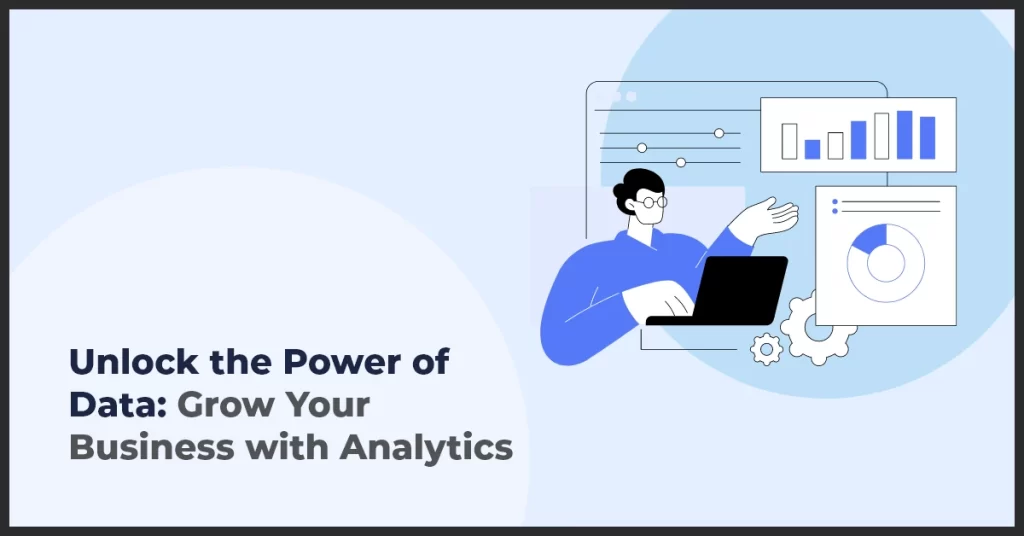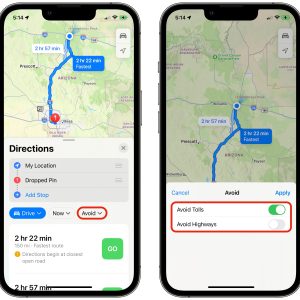

Embark on a Journey of Business Analytics: A Comprehensive Guide to Empowering Your Business Decisions
Editor’s Notes: This in-depth guide on “business analytics degree” was meticulously crafted on [date], recognizing its pivotal role in shaping the future of data-driven decision-making for businesses.
Through extensive analysis and insights, we have meticulously crafted this “business analytics degree” guide to empower target audience with the knowledge and tools essential for making informed choices in the field.
Key Differences: Business Analytics Degree vs. Other Degrees
| Degree | Focus | Skills Developed |
|---|---|---|
| Business Analytics | Data analysis, modeling, and visualization | Data management, statistical analysis, machine learning |
| Computer Science | Software development, algorithms, and data structures | Programming, software engineering, database management |
| Statistics | Data collection, analysis, and interpretation | Statistical modeling, probability theory, data visualization |
Transition to Main Article Topics
- The Importance of Business Analytics in Today’s Business Landscape
- Exploring Career Opportunities with a Business Analytics Degree
- Essential Skills for Success in Business Analytics
- Top Universities and Programs for Business Analytics Degrees
- Emerging Trends in Business Analytics
Business Analytics Degree
In today’s data-driven business landscape, a business analytics degree empowers professionals with the skills and knowledge to extract meaningful insights from data, driving informed decision-making. Key aspects of a business analytics degree include:
- Data Analysis: Interpreting and extracting insights from raw data.
- Statistical Modeling: Developing mathematical models to represent and analyze data.
- Machine Learning: Leveraging algorithms to automate data analysis and prediction.
- Data Visualization: Communicating data insights through visual representations.
- Communication: Effectively conveying data-driven insights to stakeholders.
- Problem-Solving: Utilizing data analysis to identify and solve business problems.
- Ethics: Understanding the ethical implications of data collection and analysis.
- Business Acumen: Applying data analytics techniques to real-world business scenarios.
These key aspects are interconnected, forming a comprehensive foundation for professionals seeking to harness the power of data analytics in various industries. For instance, a business analyst might use data analysis and statistical modeling to identify trends in customer behavior, then leverage machine learning to develop predictive models for future sales forecasting. Effective communication skills are crucial for conveying these insights to decision-makers, ultimately driving data-informed business strategies.
Data Analysis
In the realm of business analytics, data analysis stands as a cornerstone, providing the foundation for extracting meaningful insights from raw data. Without the ability to analyze and interpret data, businesses would be navigating in the dark, devoid of the critical information needed to make informed decisions.
A business analytics degree equips professionals with the skills and knowledge to perform data analysis effectively. Through coursework in statistics, machine learning, and data visualization, graduates gain the ability to identify patterns, trends, and correlations within data. This empowers them to uncover hidden insights that can drive business strategy and improve operational efficiency.
Suggested read: Unveiling the Secrets of Artist Business Cards: Tips and Tricks for Unmatched Impact
For instance, a business analyst might use data analysis to identify customer segments with similar purchasing behaviors. This information can then be used to develop targeted marketing campaigns, increasing the effectiveness of marketing efforts and boosting sales. In another scenario, a data analyst might use data analysis to optimize supply chain management, reducing costs and improving customer satisfaction.
The practical significance of data analysis in business cannot be overstated. By extracting insights from data, organizations can gain a competitive advantage, make better decisions, and ultimately achieve their business goals.
| Industry | Data Analysis Applications |
|---|---|
| Retail | Customer segmentation, demand forecasting, pricing optimization |
| Healthcare | Disease diagnosis, treatment planning, drug discovery |
| Finance | Risk assessment, fraud detection, portfolio management |
| Manufacturing | Quality control, predictive maintenance, supply chain optimization |
Statistical Modeling
Within the realm of business analytics, statistical modeling occupies a central role, providing the means to represent and analyze data using mathematical models. Statistical modeling is the cornerstone of data-driven decision-making, enabling businesses to uncover patterns, relationships, and trends within complex data.
A business analytics degree equips professionals with the knowledge and skills to develop and apply statistical models to real-world business problems. Through coursework in probability, statistics, and machine learning, graduates gain the ability to construct models that accurately represent data, perform statistical analysis to identify significant patterns, and make predictions based on data.
For instance, a business analyst might use statistical modeling to develop a predictive model for customer churn. This model could incorporate factors such as customer demographics, purchase history, and engagement metrics to identify customers at risk of leaving. The analyst could then use this information to develop targeted retention strategies, reducing customer churn and increasing customer lifetime value.
The practical significance of statistical modeling in business is immense. By developing and applying statistical models, organizations can improve their decision-making processes, optimize operations, and gain a competitive advantage. Statistical modeling is used in a wide range of industries, including finance, healthcare, retail, and manufacturing.
| Industry | Statistical Modeling Applications |
|---|---|
| Finance | Risk assessment, fraud detection, portfolio management |
| Healthcare | Disease diagnosis, treatment planning, drug discovery |
| Retail | Demand forecasting, customer segmentation, pricing optimization |
| Manufacturing | Quality control, predictive maintenance, supply chain optimization |
Machine Learning
In the realm of business analytics, machine learning has emerged as a transformative force, automating data analysis and prediction tasks that were once performed manually. This powerful technology empowers businesses to extract deeper insights from data, identify trends, and make more informed decisions.
- Predictive Analytics: Machine learning algorithms can be trained on historical data to make predictions about future events. For example, a business analyst might use machine learning to develop a predictive model for customer churn. This model could incorporate factors such as customer demographics, purchase history, and engagement metrics to identify customers at risk of leaving. The analyst could then use this information to develop targeted retention strategies, reducing customer churn and increasing customer lifetime value.
- Automated Data Analysis: Machine learning algorithms can be used to automate repetitive and time-consuming data analysis tasks. For example, a business analyst might use machine learning to automate the process of identifying outliers and anomalies in data. This can free up analysts to focus on more complex and value-added tasks.
- Real-Time Insights: Machine learning algorithms can be used to analyze data in real time, providing businesses with up-to-date insights. For example, a business analyst might use machine learning to monitor customer sentiment on social media in real time. This information can be used to identify and address customer concerns quickly, improving customer satisfaction and brand reputation.
- Improved Decision-Making: Machine learning provides businesses with the ability to make more informed decisions by automating data analysis and prediction. By leveraging machine learning, businesses can identify opportunities, mitigate risks, and optimize their operations.
In conclusion, machine learning is an essential component of a business analytics degree. It provides businesses with the tools and techniques needed to extract deeper insights from data, automate data analysis and prediction tasks, and make more informed decisions.
Data Visualization
In the realm of business analytics, data visualization plays a pivotal role in communicating complex data insights in a clear and concise manner. Through the use of charts, graphs, and other visual representations, data visualization empowers business professionals to uncover hidden patterns, identify trends, and make informed decisions.
- Enhanced Decision-Making: Data visualization provides a powerful means for business analysts to present data-driven insights to stakeholders, enabling them to make informed decisions based on a comprehensive understanding of the data.
- Improved Communication: Visual representations of data simplify complex information, making it more accessible and easier to understand for both technical and non-technical audiences.
- Trend Identification: Data visualization helps identify patterns and trends within data, allowing businesses to anticipate future outcomes and adjust their strategies accordingly.
- Effective Storytelling: Visualizations can be used to create compelling narratives that effectively communicate data-driven insights, capturing the attention of stakeholders and driving action.
In conclusion, data visualization is an essential component of a business analytics degree, providing professionals with the skills to transform raw data into actionable insights. By leveraging visual representations, business analysts can effectively communicate complex information, enhance decision-making, and drive business success.
Suggested read: Franchise Business for Sale – Find Profitable Opportunities Near You
Communication
In the realm of business analytics, effective communication is paramount for translating data-driven insights into actionable strategies. A business analytics degree equips professionals with the skills to articulate complex data findings to a diverse range of stakeholders, including executives, managers, and clients.
Communication plays a crucial role in the business analytics process because it enables analysts to:
- Bridge the gap between data and decision-making: By effectively conveying data-driven insights, analysts empower stakeholders to make informed decisions based on a comprehensive understanding of the data.
- Influence stakeholders and drive action: Clear and persuasive communication is essential for gaining buy-in from stakeholders and driving them to take action based on the insights provided.
- Build trust and credibility: When analysts can effectively communicate their findings, they establish trust and credibility with stakeholders, fostering strong relationships and ensuring that their insights are valued.
To be effective communicators, business analytics professionals must possess a combination of technical proficiency and soft skills. They must have a deep understanding of data analysis techniques and be able to translate complex statistical concepts into clear and concise language. Additionally, they must possess strong presentation skills and be able to tailor their communication style to the audience.
In practice, effective communication is essential for the success of business analytics projects. For example, a business analyst might use data visualization to present insights on customer churn to the marketing team. By effectively communicating the key drivers of churn, the analyst can help the marketing team develop targeted strategies to reduce customer attrition.
In conclusion, communication is a vital component of a business analytics degree. It enables analysts to bridge the gap between data and decision-making, influence stakeholders and drive action, and build trust and credibility. By honing their communication skills, business analytics professionals can maximize the impact of their work and drive business success.
Problem-Solving
In the competitive landscape of modern business, problem-solving has emerged as a critical skill, and a business analytics degree equips individuals with the tools and techniques to excel in this area. Data analysis serves as a fundamental pillar of problem-solving in business, enabling professionals to identify and address challenges through data-driven insights.
A business analytics degree provides a comprehensive understanding of data analysis techniques, statistical modeling, and machine learning algorithms. Through coursework and practical projects, graduates gain the ability to extract meaningful insights from raw data, uncover hidden patterns, and develop predictive models. Armed with these capabilities, business analytics professionals can tackle complex business problems with a structured and data-driven approach.
Consider the example of a retail company facing declining sales. A business analyst with expertise in data analysis can leverage customer data to identify factors contributing to the decrease. By analyzing purchase history, demographics, and customer feedback, the analyst can uncover insights into changing consumer preferences, ineffective marketing campaigns, or operational inefficiencies. This data-driven understanding enables the company to develop targeted strategies to address the root causes and drive sales growth.
The practical significance of problem-solving in business analytics is immense. Organizations across industries rely on data analysis to optimize operations, reduce costs, and gain a competitive edge. Business analytics professionals who possess strong problem-solving skills are highly sought after in various fields, including consulting, finance, healthcare, and technology.
| Industry | Problem-Solving Applications |
|---|---|
| Retail | Customer segmentation, demand forecasting, pricing optimization |
| Healthcare | Disease diagnosis, treatment planning, drug discovery |
| Finance | Risk assessment, fraud detection, portfolio management |
| Manufacturing | Quality control, predictive maintenance, supply chain optimization |
Ethics
In the realm of business analytics, ethics plays a pivotal role, guiding professionals in the responsible and ethical use of data. A business analytics degree equips individuals with a deep understanding of the ethical implications surrounding data collection, analysis, and decision-making.
Suggested read: Uncover Business Analyst Intern Insights: A Gateway to Success
The ethical considerations in business analytics are multifaceted and include issues such as data privacy, security, and bias. Business analytics professionals must be aware of the potential risks and consequences of data misuse and be committed to upholding ethical standards throughout the data analytics process.
For instance, a business analyst working with customer data must ensure that the data is collected and used in a manner that respects customer privacy. The analyst must also be mindful of potential biases in the data and take steps to mitigate their impact on the analysis results.
The practical significance of ethics in business analytics cannot be overstated. By adhering to ethical principles, businesses can build trust with customers and stakeholders, mitigate legal and reputational risks, and foster a culture of responsible data stewardship.
| Ethical Consideration | Impact on Business Analytics |
|---|---|
| Data privacy | Ensuring that customer data is collected and used in a manner that respects their privacy |
| Data security | Protecting customer data from unauthorized access, use, or disclosure |
| Algorithmic bias | Mitigating the potential for bias in machine learning algorithms and ensuring that decisions are fair and equitable |
Business Acumen
In the realm of business analytics, business acumen holds immense significance, enabling professionals to effectively apply data analytics techniques to solve real-world business problems and drive informed decision-making. A business analytics degree equips individuals with the essential knowledge and skills to develop and execute data-driven strategies that align with organizational objectives.
- Strategic Planning: Business acumen empowers professionals to analyze market trends, customer behavior, and competitive landscapes to formulate data-driven strategic plans. By leveraging data analytics techniques, they can identify growth opportunities, optimize resource allocation, and stay ahead of the competition.
- Operational Efficiency: Data analytics techniques enable businesses to improve operational efficiency by identifying bottlenecks, optimizing processes, and reducing costs. Business analytics professionals with strong business acumen can use data to make informed decisions that enhance productivity and streamline operations.
- Customer Relationship Management (CRM): Business acumen is crucial for developing effective CRM strategies. Data analytics techniques help professionals segment customers, understand their preferences, and personalize marketing campaigns. By leveraging data-driven insights, businesses can build stronger customer relationships and increase customer lifetime value.
- Risk Management: Business acumen enables professionals to identify and mitigate potential risks. Data analytics techniques can be used to assess financial risks, fraud risks, and operational risks. By analyzing data patterns and trends, businesses can proactively address risks and protect their bottom line.
In conclusion, business acumen is an indispensable component of a business analytics degree. It provides professionals with the ability to translate data analytics insights into actionable strategies that drive business success. By combining technical skills with a deep understanding of business principles, graduates can confidently navigate the complexities of the modern business landscape and make data-driven decisions that deliver exceptional results.
Frequently Asked Questions about Business Analytics Degrees
Individuals considering pursuing a business analytics degree often have questions about the program, career opportunities, and the value of the degree in today’s job market. This FAQ section addresses some of the most common questions and provides informative answers to help prospective students make informed decisions.
Question 1: What is a business analytics degree?
A business analytics degree is an academic program that provides students with the knowledge and skills necessary to analyze data, solve business problems, and make data-driven decisions. The curriculum typically covers topics such as data analysis, statistical modeling, machine learning, data visualization, and business intelligence.
Question 2: What career opportunities are available with a business analytics degree?
Suggested read: Unlock the Secrets of Apple Maps: Discover the Path to Business Success
Graduates with a business analytics degree are qualified for a wide range of careers in various industries. Some common job titles include business analyst, data analyst, data scientist, market researcher, and operations analyst. Business analytics professionals are employed in sectors such as finance, healthcare, retail, manufacturing, and technology.
Question 3: Is a business analytics degree worth it?
The value of a business analytics degree lies in the high demand for skilled professionals in the field. Data analytics has become essential for businesses to make informed decisions, improve operations, and gain a competitive advantage. Earning a business analytics degree equips individuals with the knowledge and skills to meet this demand and pursue rewarding careers.
Question 4: What are the prerequisites for a business analytics degree?
Prerequisites for a business analytics degree typically include a strong foundation in mathematics, statistics, and programming. Some programs may also require coursework in business or economics. It is recommended to check with the specific program requirements of the institution you are interested in.
Question 5: How long does it take to complete a business analytics degree?
Suggested read: Unveil the Secrets of Business Professional Outfits for Women: A Guide to Success
The duration of a business analytics degree program can vary depending on the institution and the type of program (e.g., bachelor’s, master’s, or doctoral). Full-time students typically complete a bachelor’s degree in four years, a master’s degree in one to two years, and a doctoral degree in four to seven years.
Question 6: What are the benefits of earning a business analytics degree?
Earning a business analytics degree offers numerous benefits, including career advancement opportunities, increased earning potential, and the ability to make data-driven decisions in various business settings. Business analytics professionals are highly sought after in today’s job market and are well-positioned for success in data-driven organizations.
In summary, a business analytics degree is a valuable investment for individuals seeking to pursue careers in the growing field of data analytics. It provides the knowledge and skills necessary to analyze data, solve business problems, and make informed decisions. With strong career prospects and high earning potential, a business analytics degree can open doors to rewarding and successful careers.
Transition to the next article section: Exploring Career Opportunities with a Business Analytics Degree
Tips to Enhance Your Business Analytics Skills and Career
In the competitive landscape of business analytics, continuous learning and skill development are essential for success. Here are some valuable tips to enhance your business analytics capabilities and advance your career:
Tip 1: Master Core Business Concepts
A strong foundation in business concepts is crucial for effective data analysis. Familiarize yourself with principles of accounting, finance, marketing, and operations to understand the context of the data you work with.
Tip 2: Develop Expertise in Data Analysis Tools and Techniques
Suggested read: Unlock the Secrets of Coaching Business Coaches: Discoveries for Business Success
Proficiency in data analysis tools such as SQL, Python, and R is essential. Master statistical techniques, machine learning algorithms, and data visualization methods to extract meaningful insights from data.
Tip 3: Build a Portfolio of Projects
Showcase your skills by working on real-world business analytics projects. Participate in hackathons, competitions, or contribute to open-source projects to demonstrate your abilities and build a portfolio.
Tip 4: Stay Updated with Industry Trends
The field of business analytics is constantly evolving. Stay abreast of the latest advancements in data science, machine learning, and artificial intelligence to remain competitive.
Tip 5: Seek Mentorship and Collaboration
Connect with experienced professionals in the field and seek their guidance. Collaborate with colleagues to share knowledge, learn from diverse perspectives, and expand your network.
Tip 6: Communicate Effectively
The ability to communicate data analysis findings clearly and persuasively is crucial. Develop strong presentation and storytelling skills to convey insights to stakeholders and drive data-driven decision-making.
Tip 7: Embrace Ethical Considerations
Suggested read: Uncover the Secrets of Business Formal Attire for Women: A Guide to Success
Maintain high ethical standards in your work. Be mindful of data privacy, security, and potential biases in data analysis to ensure responsible and trustworthy use of data.
Tip 8: Pursue Professional Development
Continuously enhance your knowledge and skills through certifications, workshops, and conferences. Stay updated with the latest industry best practices and emerging technologies to remain at the forefront of business analytics.
By implementing these tips, you can significantly enhance your business analytics capabilities, increase your career prospects, and contribute to the success of data-driven organizations.
Transition to the article’s conclusion: The Future of Business Analytics and Its Impact on Business Decision-Making
Conclusion
In today’s data-driven business landscape, a business analytics degree empowers professionals with the knowledge, skills, and tools to harness the power of data for informed decision-making. This comprehensive guide has explored various aspects of business analytics, emphasizing its importance, career opportunities, essential skills, and ethical considerations.
As we look towards the future, business analytics will continue to play a pivotal role in shaping business strategies and driving organizational success. The integration of advanced technologies, such as artificial intelligence and machine learning, will further enhance the capabilities of business analytics professionals, enabling them to uncover deeper insights, automate complex tasks, and make more accurate predictions.
For individuals seeking to advance their careers or embark on a new path in business analytics, pursuing a business analytics degree is a strategic investment. By embracing the transformative power of data analytics, you can become a valuable asset to organizations and contribute to the data-driven decision-making that will shape the future of business.






